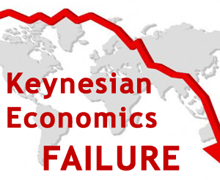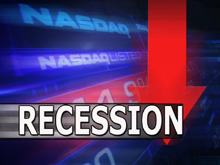 by Ron Ross –
by Ron Ross –
It’s now clear that the federal government’s massive stimulus spending has not achieved its objectives. Why hasn’t it? It’s important that we have answers to that question.
The stimulus was premised on the economic model known as Keynesianism: the intellectual legacy of the late English economist John Maynard Keynes. Keynesianism doesn’t work, never has worked, and never will work. Without a clear understanding of why Keynesianism cannot work we will be forever doomed to pursuing the impossible.
There’s no real mystery about why Keynesianism fails. There are numerous reasons why and they’ve been known for decades. Keynesians have an unrealistic and unsupportable view of how the economy works and how people make decisions. [Read more…]


